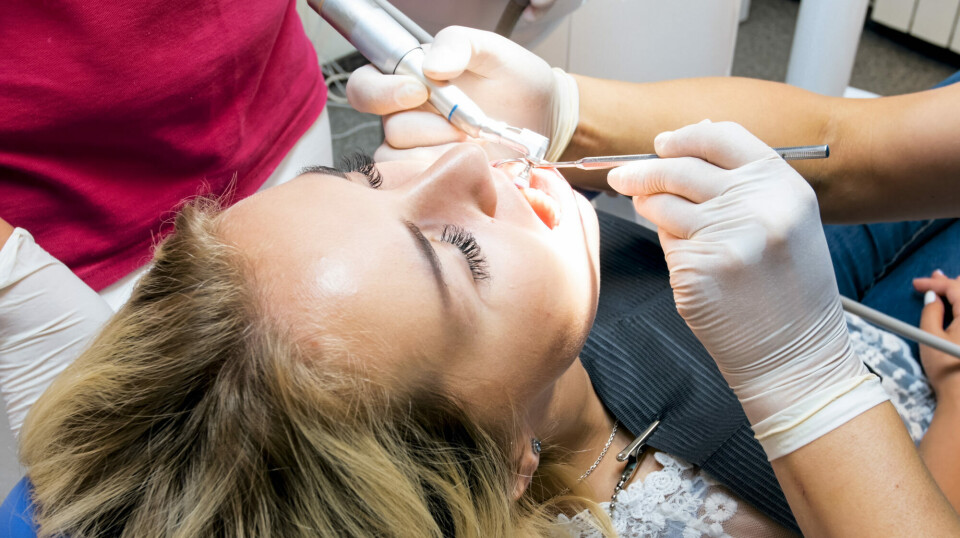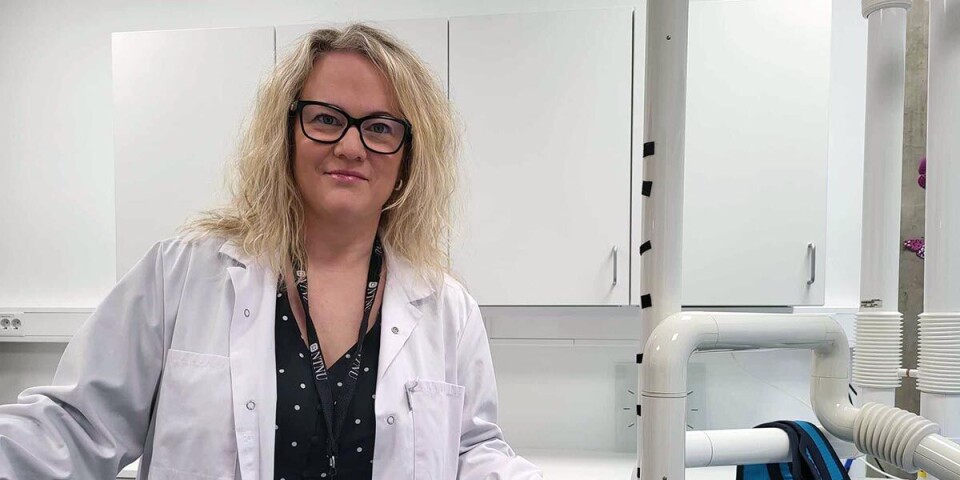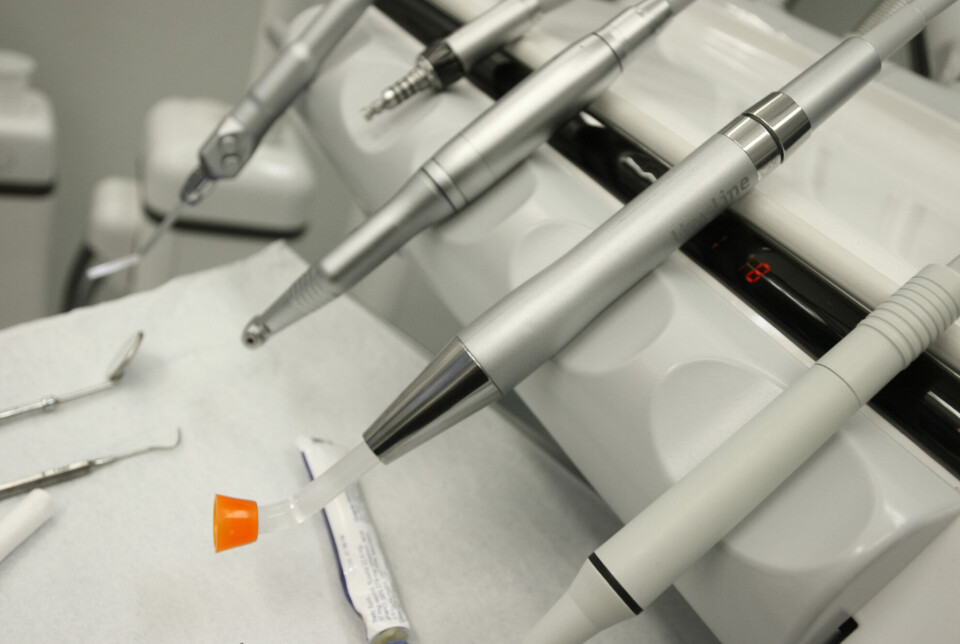THIS CONTENT IS BROUGHT TO YOU BY NTNU Norwegian University of Science and Technology - read more
Afraid of the dentist? The real cause may not be what you think
Young people who have experienced bullying, divorce, violence, or abuse are significantly more likely to be anxious in the dentist’s chair.

Dental fear is an intense emotional reaction that can be characterised by anxiety, palpitations, sweating, dizziness, a feeling of unreality, or nausea.
Some avoid going to the dentist. Others feel an intense urge to flee once they are there.
A major risk factor is painful experiences at the dental clinic.
Between 8 to 20 per cent of children and adolescents are so afraid of dental treatment that they meet the criteria for a diagnosis.
New research now shows that dental fear occurs more often in those who have been exposed to stressful childhood experiences.
In other words, painful experiences in life can affect how you feel in the dentist’s chair.
Lying on your back can make you feel vulnerable
The study, with responses from more than 5,800 adolescents aged 13 -17 years, shows that adolescents who have experienced stressful experiences during childhood, such as violence, divorce, abuse, or bullying are significantly more likely to have dental fear than those who have not had such experiences.
The study is based on data from HUNT, The Trøndelag Health Study, which is one of the largest health studies ever performed. It's a unique database of questionnaire data, clinical measurements, and samples from a county’s inhabitants since 1984.
The more stressful experiences the adolescents had, the greater the likelihood that they would have dental fear.

The study also shows that the association was stronger in girls than in boys.
Lena Myran, a specialist in psychology, works at the Competence Centre Dental Health Mid. She explains that for many who have experienced a lot of insecurity in childhood, dental treatment can be demanding.
“The patients lie on their backs in a vulnerable position while an authority figure works inside their mouth. It’s no wonder that dental treatment can be difficult,” she says.
Not been to the dentist in 40 years
At the centre, there are several specialist services. Dentists and psychologists work together in teams to help children and adults with severe dental anxiety.
Myran works with adult patients. She is also conducting research on the connections between painful childhood experiences and health, related to the oral cavity and teeth.
“I have patients who haven’t been to the dentist in 40 years,” says Myran.
The study she recently published is only about young people and looks at the connections between painful childhood experiences and dental fear.
The researchers looked at different types of stressors. Painful experiences at the dental clinic were not included in this material.
Myran notes that the study cannot determine cause and effect.
"We can only see if there's a connection,” she says.
In the study she found a clear link between dental fear and various types of painful childhood experiences, including bullying.
Girls are most at risk
“Bullying means being systematically rejected and ridiculed. If you have experienced bullying, you may have a hypersensitivity to other people’s intentions," says Myran.
She further explains that there may be periods during dental treatment with silence, and that you don't quite know what the dentist is thinking. This may be similar to situations where these individuals have felt insecure.
"For people who've been bullied, saying what you think and feel may have felt dangerous,” she says.
Myran was surprised that the correlation between painful childhood experiences and dental fear was stronger in girls than in boys.
“We know that dental fear is more common among girls and that more girls than boys have experienced sexual abuse. There are also more girls than boys who develop anxiety and depression in adolescence, but the fact that we found such a clear difference in our material was still surprising,” she says.

Myran believes the findings should influence how dental health services treats adolescents.
“When dental professionals meet frightened patients, they can ask about the cause. Patients often find it safe for the dentist to ask. Patients know that the dentist is not a psychologist, so it doesn't have to be a long conversation. But by taking the patient’s experiences and fears into account, dental professionals can contribute to better dental health and safer patient experiences,” she says.
Tell your dentist
Inspired by other initiatives in Norway, the competence centre established a service for children and adolescents who suffer from dental fear eight years ago. It's called Safe Children in Dental Treatment (TBiT). This offer is now being rolled out nationally.
As part of this, training is being offered to dental professionals on how to deal with young patients who are afraid.
“It’s important to talk to your dentist or dental hygienist about how you feel. Just telling your dentist that you are afraid can help an incredible amount. Even a short sentence about your fears will lead many dentists to be more sensitive," says Myran.
She adds that the dentist is a good ally who is there to help.
"You don’t have to ask in any specific way, but just say that you're afraid,” she says.
She emphasises that many children may have had painful childhood experiences without developing dental fear. Fear of the dentist is generally strongest in childhood and often diminishes as the child matures.
Children who have undergone a lot of dental treatment are extra vulnerable to developing dental fear.
“Our study and other research show that, overall, there are many ways to develop intense fear of going to the dentist. Fortunately, there's good help available,” says Myran.
References:
Myran et al. Associations of adverse childhood experiences with dental fear, and the mediating role of dental fear on caries experience: the Young-HUNT4 Survey, BMC Oral Health, 2025. DOI: 10.1186/s12903-025-06486-1
Beaton et al. Why Are People Afraid of the Dentist? Observations and Explanations, Medical Principles and Practice, vol. 23, 2014. DOI: 10.1159/000357223
Raadal et al. 'Relationship between caries prevalence at 5 years of age and dental anxiety at 10', European Journal of Paediatric Dentistry, 2002. PMID: 12871013 (Abstract)
More content from NTNU:
-
This determines whether your income level rises or falls
-
Why is nothing being done about the destruction of nature?“We hand over the data, but then it stops there"
-
Researchers now know more about why quick clay is so unstable
-
Many mothers do not show up for postnatal check-ups
-
This woman's grave from the Viking Age excites archaeologists
-
The EU recommended a new method for making smoked salmon. But what did Norwegians think about this?





































